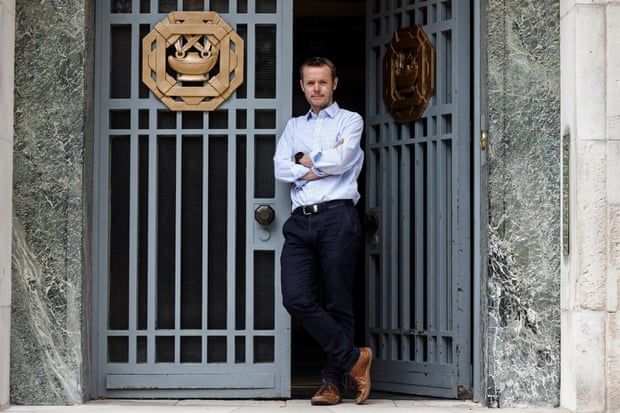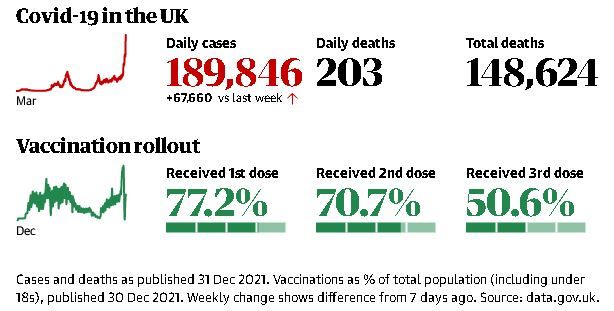
UK government’s Covid advisers enduring ‘tidal waves of abuse’
The “appalling” scale of abuse, intimidation and threatening behaviour directed at the UK government’s scientific and medical advisers has been laid bare in a Guardian survey of experts working on the pandemic.
Dozens of UK advisers described incidents ranging from coordinated online attacks to death threats and acts of intimidation, such as photos being taken of their homes and shared online and suspicious packages arriving in the post, some containing items with messages scrawled on them.
Further harassment has included vitriolic tweets, emails and phone calls, hate mail, threats of violence, complaints sent to employers, referrals to the General Medical Council watchdog, offensive notes left on cars and abuse shouted through the letterbox. The police have brought charges in a small number of cases when individuals linked to specific threats were identified.
 Professor John Edmunds outside the London School of Hygiene and Tropical Medicine.
Professor John Edmunds outside the London School of Hygiene and Tropical Medicine.
Advisers were not the only ones targeted. The abuse spilled over to their students, colleagues and family members, including partners and children. One adviser who works as a GP said the surgery’s receptionists had been subjected to “vile tirades” from callers as a result of their advisory role.
In another case, an adviser’s child was repeatedly targeted by a teacher who blamed the parent for the government’s lockdown policy. The family did not make a formal complaint because the child’s exam grade depended on the teacher’s assessment.
The Guardian survey was sent to more than 100 scientists, doctors and other researchers who contribute to the advice ministers receive through bodies such as the Scientific Advisory Group for Emergencies (Sage), the modelling and behavioural science subgroups that support Sage, and other expert groups such as the New and Emerging Respiratory Virus Threats Advisory Group (Nervtag) and the Joint Committee on Vaccination and Immunisation (JCVI). The responses have been anonymised.
Three-quarters of the 42 respondents received significant abuse about government policy, their views on the science, or their research findings, often after being quoted in the media or speaking at open events such as parliamentary inquiries or webinars hosted by organisations such as the UK’s various royal societies.
In an article for the Guardian today, Prof John Edmunds, an epidemiologist at the London School of Hygiene and Tropical Medicine and a member of Sage, said he and junior staff were targeted regularly with abusive emails. “If you mention vaccination in the media, particularly vaccination of children, then there is likely to be a reaction,” he writes. “However, this only occurs if one’s comments are picked up by the rightwing press – particularly the Daily Mail.”
One of the advisers surveyed received a death threat on Twitter, which was reported to the police, and experienced a “tidal wave of abuse” whenever they appeared in the media. “A lot of it is misogynistic and a lot of it is deeply unpleasant,” a doctor said. “I’ve never experienced anything like this before. I’m just trying to do the best I can to stop people dying.”
Much of the activity comes from people who feel more threatened by the government’s response to the pandemic than the pandemic itself, even though advisers are not involved in policy decisions. Many advisers say abuse peaks when ever they speak publicly about masks, vaccines, Covid treatments, circuit-breakers or lockdowns, meaning it is increasing with the spread of the Omicron variant.
At the beginning of the pandemic last year, a surge in threatening behaviour led government security experts to brief the advisers on how best to protect themselves, including how to increase computer security and improve their personal safety by varying the time they travelled to work and the route they used, and checking under their car before driving.
Some advisers have had security reviews of their homes and workplaces and alarms and 24-hour surveillance cameras installed, linked to the local police station. A number of universities have hired private security firms to help the experts operate safely and to ensure campaigners and protesters do not disrupt their work. Government cybersecurity experts have removed some sensitive material posted online, but this has not always been possible.

Many advisers reported a stream of hate via Twitter and email, with messages such as “I hope your family die”, “I hope cunts like you are fucking held accountable”, “you will pay for killing our children with vaccines” and “fuck off back to where you came from”. The mainstream media sometimes fuelled the activity by emphasising worst-case scenarios, some respondents said, or legitimised abuse from social media trolls by launching their own attacks on advisers.
The survey found no clear evidence that women received more abuse than men, but some were less willing to describe their experiences. Numerous male counterparts expressed dismay at the intensity and nature of the abuse directed at women they knew. “There seems to be a huge gender imbalance with women being targeted so much more than men,” one said.
Despite the torrent of abuse, several advisers emphasised that they also received praise, thanks and support from members of the public, which counterbalanced the vitriol. “It has vaccinated me against much of the hate,” one said.
 Science minister George Freeman.
Science minister George Freeman.
George Freeman, the science minister, called the abuse “appalling”. He said: “All of us who value our freedom and democracy need to call this out … Scientists and doctors should not be held responsible for decisions taken in good faith by ministers accountable to parliament.”
Chi Onwurah, the shadow science minister, said the attacks were “wholly unacceptable” and the government’s much-delayed online safety bill was desperately needed to counter misinformation.
While many advisers praised the Cabinet Office and the Sage secretariat for setting up “extensive support mechanisms”, some felt they would have benefited from a warning and security advice before signing up.
The attention has led some scientists to keep their heads down, refuse interviews, and consider withdrawing from the public discussion. But most said the abuse had little effect or even emboldened them. “If anything, it motivated me to engage further,” one adviser said. “Clearly my voice was being heard and having an impact.”
Another said: “If we stop speaking up, and stop providing advice, something else will fill the void and it will be misinformation, false narratives and so on. Do we acquiesce and allow them to take over and risk people’s lives?”










